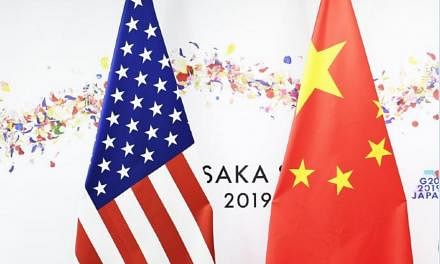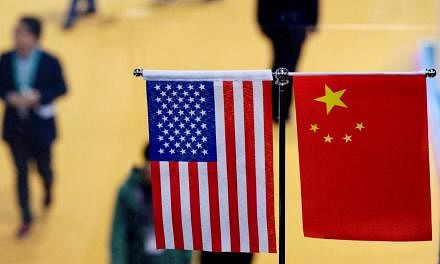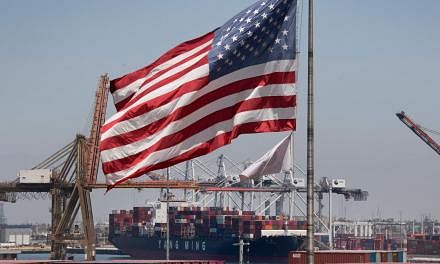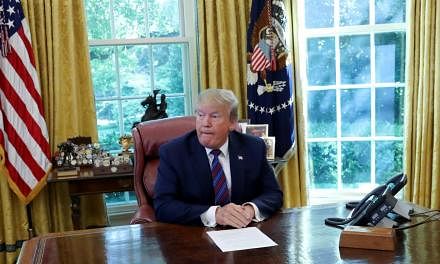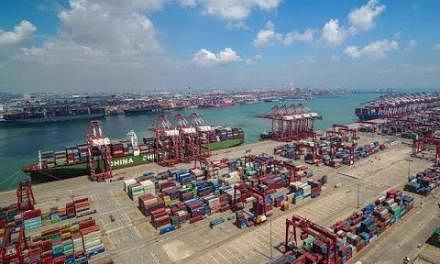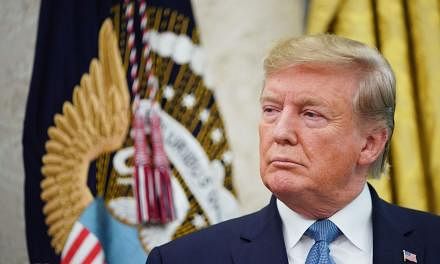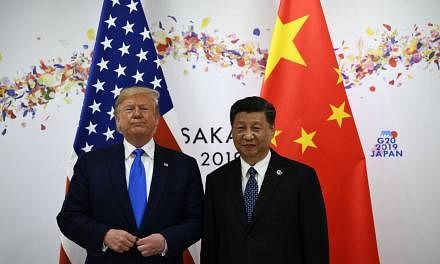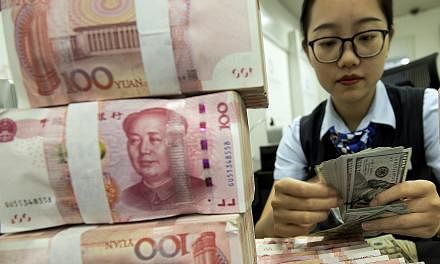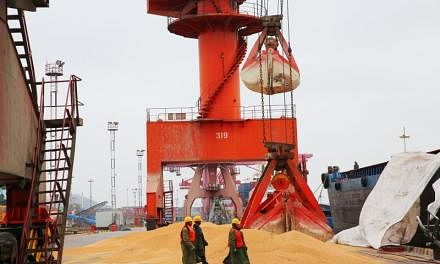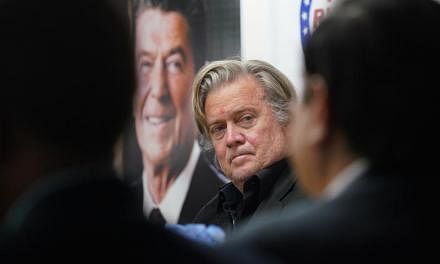TOKYO (THE YOMIURI SHIMBUN) - The United States is set to impose its third round of punitive duties on China, on the grounds of infringement of intellectual property rights by China. Starting on Sept 24, the US will impose an additional duty of 10 per cent on US$200 billion (about S$273.6 billion) worth of products imported from China.
If implemented, China said the country would slap its own additional duties on US imports in retaliation.
When combined with the previous two rounds of tariffs, the upcoming round of tariffs will bring the total scale of sanctions to US$250 billion worth of imports from China. As China's annual exports to the US total about US$500 billion, high tariffs will be imposed on about half of the goods the US imports from China.
The escalating confrontation between the two major economic powers would aggravate the sentiments of business firms and markets and are likely to cause global trade and investment to stagnate.
Both countries need to engage in ongoing dialogue, no matter what, and doggedly search for a clue to resolve the trade friction.
US imports from China that are subject to the third round of punitive duties include many products used in everyday life, such as foods and electric appliances. With price hikes of imported products, consumers in the US could be hit hard. If the trade friction drags on over a protracted period, adverse impacts will spread gradually over the US economy, which is currently brisk.
The US protectionist policy of disregarding international rules and imposing punitive measures unilaterally cannot be permitted. The US ought to be fully aware that there are no winners in a trade war.
JAPAN MUST ACT WISELY
US President Donald Trump is even considering a fourth round of punitive tariffs. Should it happen, all of the goods that the US imports from China will be subject to additional tariffs.
Because of the aggravating trade problem, concerns over an economic slowdown have already been increasing in China, bringing about drops in stock prices and the falling value of its currency.
A situation in which China - a driving force of the world economy - suffers an even heavier blow must be avoided.
Lying behind the antagonism between the two countries is not only the problem of the US trade deficit with China but also their rivalry for supremacy in digital technologies.
In the US, discontent runs deep, with many saying that China, while distorting the competitive environment, has been fostering its high-tech industries. A sense of crisis has also grown over the likelihood that should the US be deprived of its technological supremacy, US national security would be threatened.
Needless to say, in order to settle the conflict, it is essential that China correct its unfair practices and measures on its own. Beijing should steadily move ahead with a second look at such practices as providing massive government subsidies to domestic companies or forcing foreign firms that enter the Chinese market to transfer technology to Chinese firms.
Japan cannot disregard the US-China friction, either. Attention should be paid to the risk of Japanese companies that have production bases in the US and China seeing their supply chains cut.
The Japanese and US governments will hold ministerial-level trade talks and summit talks shortly. There is a possibility of Washington vigorously pressing Japan to further open its market for agricultural products, for instance.
Japan must not let its bilateral conflict with the US devolve into a quagmire, as China's did. It is important to make the Japan-US negotiations a venue for constructive discussion, which would contribute to the economic growth of both countries.
The Yomiuri Shimbun is a member of The Straits Times media partner Asia News Network, an alliance of 23 news media organisations.

